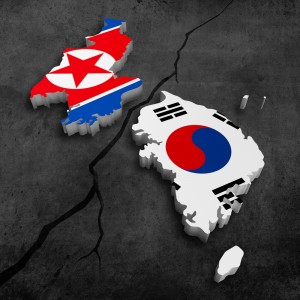The United Nations, in my opinion, has done more wrong than good to our global community, and like the League of Nations that it stemmed from, it is failing, and slowly lacking purpose.
The United Nations was created after WW2, seeking to maintain security and peace, whilst developing the relations amongst nations. It currently has 192 members and has been extremely successful in some of its endeavors, both in conflict and war. However, the amount of success they have had clearly does not measure up to the number of preventable catastrophes that they have witnessed and are accountable for. Here are 5 (of many) of these preventable catastrophes and other situations that the UN is not handling well that I am talking about.
- Nuclear Proliferation
In 1945 when the United Nations first started, the United States were the only nation to own and test Nuclear Weapons. As a safety precaution, 190 nations sign a nuclear non-proliferation treaty in 1970, including the five nations (France, England, Russia, China and the US) that admitted to owning nuclear weapons. Despite this treaty, nuclear stockpiles are increasing and remain extremely high, and a number of countries continue to develop these weapons . This purely present the ineffectiveness of the UN and their inability to enforce crucial regulation on offending nations.
- Child Sex Abuse Scandal [This one truly sickens me]
In times of desperation and war, many nations have looked to the U.N for assistance, and the U.N. peacekeepers in blue helmets are meant to represent safety and stability, but instead they have only caused greater internal problems. In cases such as Bosnia, Kosovo, Cambodia and many others, there was a trend of child prostitution where the peacekeepers were. Soldiers would reward children with candy or even money to claim that the sexual nature of their relationship was prostitution instead of rape… Senior Officials in the U.N haven’t condemned this in fear of public shaming.. If the U.N can’t do this simpler task, why bother having a U.N? Especially If they can’t own up to their own mistakes.
- The Veto Power
The U.N security council holds 15 nations. 5 permanent seat (France Russia, China, US and UK), and the other 10 are elected to serve 2 year terms. These 5 permanent members have veto power to overrule any of the voting that is done within the Security council. Even if all 14 of the other members voted yes for something, the veto vote would rule and the Council resolution will not be adopted. How is that fair in any way? One, clearly not enough countries have a say if the security council is only 15 members. Two, why have the Veto power? The big 5 could technically just act in their own interest and out rule everyone any way.. Why bother having a security council then?
- Khmer Rouge
In 1975-1979, The Khmer Rouge (an extreme form of Communism) was ruling Cambodia. Finally in 1979, the Vietnamese army invaded Cambodia to oust the Khmer Rouge and end the massacre of Ethnic Vietnamese, Chinese and Christians. The Leader Pol Pot was forced to exile and a new government was put in place in Cambodia. Shockingly, the U.N refused to recognize the new government of Cambodia, purely because it was backed by Vietnam, and Vietnam had just ended a decade long conflict with the U.S. It is extremely unreasonable that up till 1994 (almost 15 years after), the U.N recognized the Khmer Rouge as the true government of Cambia, despite the fact that they killed 2.5 Cambodians, which is about 33% of their population.
- Rwanda
And Lastly, but definitely not leastly, the most devastating (in my opinion) failure of the U.N. – The Rwandan Genocide.
Following the Rwandan Civil war in 1990’s, tensions between the two ethnic groups, The Hutus and Tutsis, were at a dangerous high. In 1993, the U.N peacekeeping forces entered Rwanda to secure capital and enable humanitarian aid, but were not authorized to use military maneuvers to achieve these goals. In 1994 when Romeo Dallaire sent a cable to the U.N headquarters, detailing the imminent genocide of the Tutsi’s by the Hutus. They simply ignored these warnings, and completely refused to acknowledge it as a ‘genocide’. As the genocide continued and the world watched in disgust, the UN continued to do nothing, when they had the resources to help. Almost 1 million Rwandans were killed in this genocide, amounting to 20% of their population. How could an international peacekeeping body refuse to assist in something like this? Since then, the Right to Protect Doctrine (which enables the U.N to other countries to Intervene when another country is under to uphold sovereignty) has been put into place which will hopefully prevent this in the future, but it definitely does not forgive the damage they allowed.
The United Nations theoretically is an extremely valuable entity in our world, but the way it is being run needs to be reevaluated. If the U.N continues down this path, it will continually fail and end up as a potentially great promise, as the League of Nations was.


